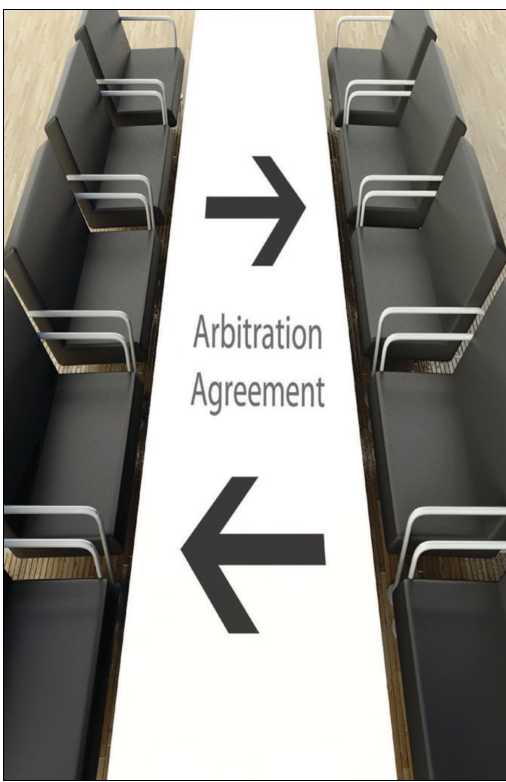A Primer on Predispute Employment Arbitration Agreements
| Publication year | 2014 |
| Pages | 0010 |
A Look at the Law
A Primer on Predispute Employment Arbitration Agreements
By Carlos A. González
As a fundamental institution in American society, the workplace is regulated by a great many laws governing the relationship between employees and employers. These laws can give rise to expensive and vexing litigation. For fiscal year 2013, the Equal Employment Opportunity Commission (EEOC) reported that more than 90,000 private sector workplace discrimination charges were filed. In 2012, the number of discrimination charges was almost 100,000. In addition to the tens of thousands of cases alleging violation of the nation's civil rights laws, thousands of other employment related cases are filed annually. These other employment matters include cases under the Fair Labor Standards Act, Family and Medical Leave Act, Employment Retirement Income Security Act and employment contract disputes.

In an effort to shorten the time for resolution and curb the rising cost of employment-related litigation, employers and employees are turning in increasing numbers to alternative dispute resolution methods, and in particular to binding arbitration.[1] While the widespread use of binding arbitration is somewhat new to the non-unionized workforce, arbitration has been a staple in collective bargaining agreements for decades. Pursuant to these agreements, issues of discrimination, discipline, failure to promote and demotion have been submitted to arbitrators for final resolution.
Employment Dispute Arbitration is Favored
The U.S. Congress and the General Assembly of Georgia have long endorsed arbitration as a means of resolving disputes. Both federal and state courts have held that the right to engage in arbitration is a matter of strong public policy.[2] Consequently, the federal and state courts of Georgia have not hesitated to enforce predispute employment arbitration agreements,[3] including agreements that require the arbitration of federal and state statutory claims.[4]
Many employers are insisting upon acceptance of predispute mandatory arbitration provisions in employment contracts and as a condition of at-will employment. The practice is not without controversy. An effort is underway in Congress to amend the Federal Arbitration Act (FAA) through the adoption of the Arbitration Fairness Act of 2013.[5] If enacted, the Arbitration Fairness Act of 2013 would restrict the ability of federal courts to enforce predispute arbitration agreements if such agreements require the arbitration of employment disputes.[
6
] Until such time as Congress acts,[7] however, state and federal courts will continue to enforce predispute employment arbitration provisions unless such provisions are otherwise unenforceable under federal[8] or state[9] lawLimitations on the Arbitration of Employment Disputes
While arbitration of employment disputes is becoming more common, crafting binding arbitration agreements between employers and employees is not without challenges. Courts have not hesitated to invalidate arbitration agreements when courts find that the agreements are one-sided and unfair. Biased selection procedures for choosing arbitrators and inconvenient arbitration forums have been grounds for invalidating arbitration provisions.[10] Courts have also invalidated arbitration schemes that defeat a statute's remedial purpose, such as limiting the scope of the relief that would be otherwise available under a statute in court.[11]
Arbitration programs that are essentially unaffordable to employees have also been subject to judicial criticism. In American Express Co. v. Italian Colors Restaurant, the U.S. Supreme Court acknowledged its earlier dicta that a successful challenge to an arbitration agreement might be made if the "filing and administrative fees attached to arbitration . . . are so high as to make access to the forum impracticable."[12] The Court places the burden to show the likelihood of incurring excessive fees on the party seeking to invalidate the agreement.[13]
Employment Arbitration Agreements Must be Properly Structured
Since arbitration agreements are contracts, it is essential that the elements of valid contract formation exist if employer and employee are to be bound to the arbitral forum. Consequently, there must be offer, acceptance and consideration evident in the agreement to arbitrate. Binding contract formation is simple in the context of individually negotiated employment agreements. The requirement becomes more complicated when dealing with employees who work without the existence of an employment contract.
Georgia strictly adheres to the at-will employment doctrine, and it is well settled that the "at-will" arrangement does not create a contractual right to continued employment. Employers whose workforce consists of at-will employees are wary of efforts that might create a legally enforceable interest in continued employment. The law has evolved, however, so that employers and employees can contractually agree to an alternative dispute resolution plan without creating a contract for continued employment.
The terms of such a plan can be set forth in an employee handbook, manual or by other separate documents. The law recognizes that doing so creates binding obligations within the scope of the at-will doctrine since the arbitration plan represents an offer by the employer to be mutually bound with the employee to the terms of the plan.[14]
In whatever manner presented, the employer should condition continued employment or an offer of employment on acceptance of the arbitration provision.[15] The mutual promise to submit employment disputes to arbitration is sufficient consideration to support contract formation.[16] The District Court in Caley v. Gulfstream Aerospace Corp., found the following employer-drafted language constituted a binding agreement to submit employment claims to arbitration.
The submission of an application, acceptance of employment or the continuation of employment by an individual shall be deemed acceptance of the DRP [Dispute Resolution...
To continue reading
Request your trial
